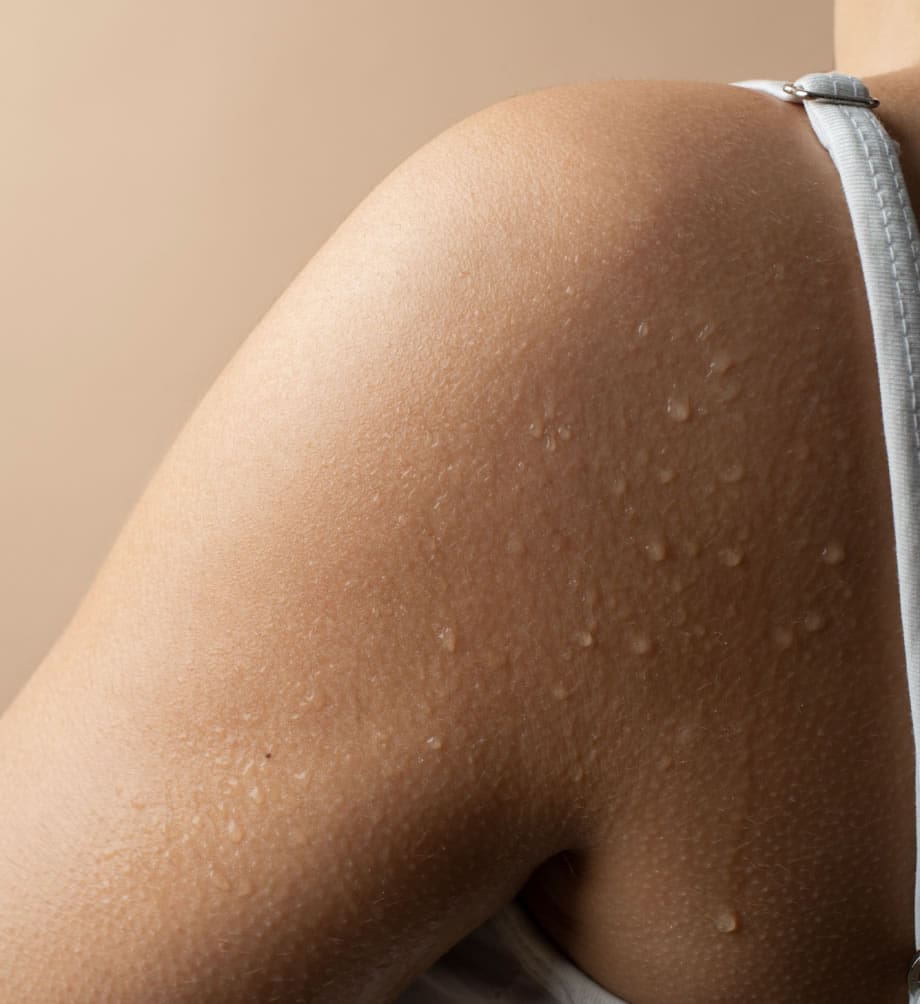Excess Sweating
IN BRICK & COLTS NECK, NJ

What Is Excess Sweating?
Excess sweating, medically known as hyperhidrosis, is a condition characterized by abnormally high levels of sweating that exceed what is necessary for regulating body temperature. This excessive sweating can occur in specific areas of the body, such as the palms, soles of the feet, underarms, face, or groin, and can significantly impact daily activities and quality of life.
Symptoms of excess sweating may vary depending on the underlying cause and severity of the condition but can include persistent sweating that occurs regardless of temperature or physical activity. Treatment options for excess sweating depend on the type, severity, and underlying cause of the condition. They may include botulinum toxin (Botox) injections, which can temporarily block the release of acetylcholine, a neurotransmitter that stimulates sweat glands. This treatment is particularly effective for focal areas of sweating, such as the underarms, palms, or soles of the feet, and can provide relief for several months per treatment.
What Causes Excess Sweating?
Primary Hyperhidrosis
This type of hyperhidrosis occurs without an underlying medical condition and is believed to be related to overactivity of the sweat glands. The exact cause of primary hyperhidrosis is not well understood, but it is thought to involve dysfunction in the body’s thermoregulatory mechanisms. Primary hyperhidrosis often runs in families and may be triggered by factors such as heat, stress, anxiety, or certain foods or beverages.
Secondary Hyperhidrosis
Secondary hyperhidrosis is associated with an underlying medical condition or medication side effect. This type of hyperhidrosis can affect larger areas of the body and may occur suddenly or develop later in life.
Environmental Factors
External factors such as hot weather, high humidity, or intense physical activity can trigger increased sweating as the body attempts to cool down and maintain its core temperature. Excessive sweating in response to environmental conditions is considered a normal physiological response and is not necessarily indicative of hyperhidrosis.
Emotional Triggers
Emotional stress, anxiety, nervousness, or excitement can stimulate the body’s sympathetic nervous system, leading to increased sweating as part of the “fight or flight” response. Individuals with primary hyperhidrosis may experience heightened sweating in response to emotional stimuli.
Genetics
Genetic factors may play a role in predisposing individuals to hyperhidrosis. Primary hyperhidrosis often runs in families, suggesting a genetic component to the condition. Certain genetic mutations or variations may affect the function of sweat glands or the body’s thermoregulatory mechanisms, leading to excessive sweating.

